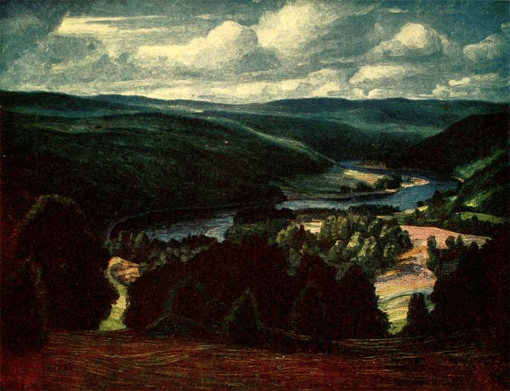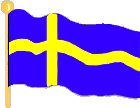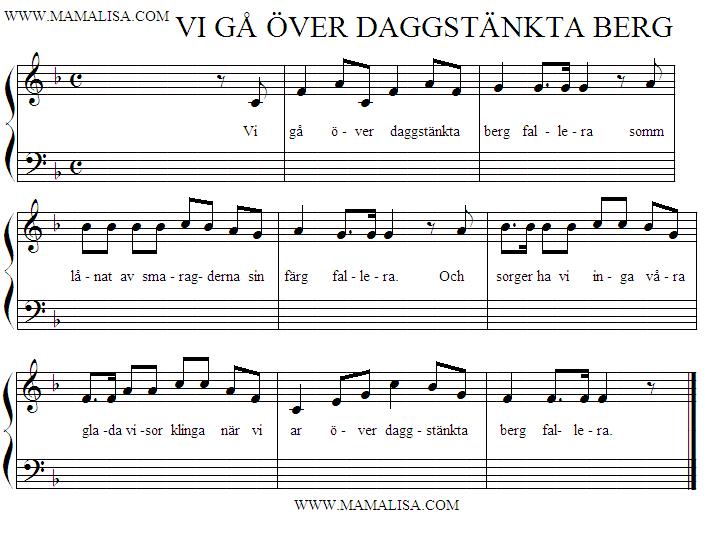Vi Gå Över Daggstänkta Berg
Following is a marching song for children...

Vi Gå Över Daggstänkta Berg
We Go Over Dew-Sprinkled Mountains
Children's Song
Children's Song
(Swedish)
(English)
Vi gå över daggstänkta berg, fallera'!,
som lånat av smaragderna sin färg, fallera'!
Och sorger ha vi inga,
våra glada visor klinga
när vi år över daggstänkta berg, fallera'!
De gamla och kloka må le, fallera'!,
vi äro ej förståndiga som de, fallera'!
Men vem skulle sjunga
om våren den unga,
om vi vore kloka som de?, fallera'!
O män'skor förglömmen er gråt, fallera'!,
och kommen och följen oss åt, fallera'!
Si, fjärran vi gånga
att solskenet fånga,
ja, kommen och följen oss åt, fallera'!
Så gladerligt hand uti hand, fallera'!,
nu gå vi till fågel Fenix' land, fallera'!
Till det sagoland som skiner
av kristaller och rubiner!
Nu gå vi till fågel Fenix' land, fallera'!
We go* over dew-sprinkled mountains
Which borrow from (the) emeralds their colour
And sorrows we have none,
Our merry songs echo
As we go over dew-sprinkled mountains.
The old and wise may smile,
We are not as sensible as they,
But who would sing
About young spring
if we were wise as they?
O people¹, forget your tears,
And come and follow us!
For far we wander
To catch the sun,
Ah, come and follow us!
So happily hand in hand
We go to the Phoenix-bird's land!
To the faeryland that shines
Of crystals and rubies!
We go to the Phoenix-bird's land!
Notes
*Go/Walk/Wander
"Fallera", stressed as it is here on the last syllable, is a nonsense word like "hum-te-dum" and "la la la".
¹ "män'skor", a contraction of "människor", is essentially the same word as German "Mensch": person, human being, but without the somewhat stilted feel those phrases have in English.
"VI GÅ ÖVER DAGGSTÄNKTA BERG" is an somewhat old-fashioned song both in terms of theme (which is somewhat loftier than usual in Swedish children's songs) and language (which still uses verb plurals, which is something that disappeared from spoken Swedish sometime in the 1910's and 20's, and from the written language around the 30's). The effect today is perhaps similar to Shakespearean use of English, thees-and-thous, although it was fairly normal use of language in the days the song was written.

Thanks and Acknowledgements
I am very grateful to Leif Stensson of Project Runeberg for contributing and translating this song and also for providing such interesting commentary.
Project Runeberg is an open, voluntary project whose purpose is to make classic Nordic literature and art available in electronic form to the public, free of charge.
Many thanks to Bob Barker for his excellent proofing abilities! Thanks to Monique for the score and midi.
Tack så mycket!

























